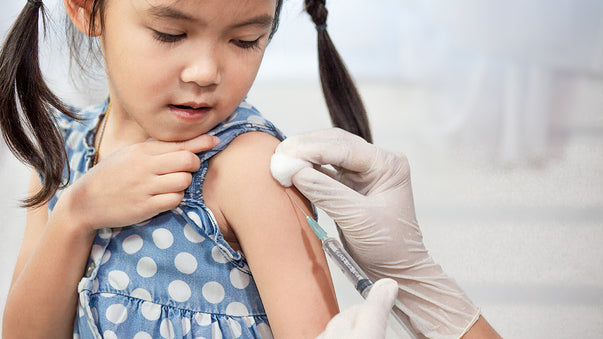COVID-19 Pandemic Roundup

Not surprisingly, this issue of Pulse is almost entirely focused on the COVID-19 pandemic. Like everyone, I am following COVID-19 news. Some encouraging scientific advances (see below) suggest that therapies and vaccines could be developed soon.
German company CureVac said it could mass-produce a coronavirus immunization from its existing facilities if its low-dose approach proves successful in trials, Reuters reports. Another Reuters story reports the German government is resisting attempts to persuade CureVac to move its research to the United States, which seems to indicate that the company’s approach is considered solid.
But, make no mistake, this doesn’t mean that COVID-19 therapies and vaccines will be available next week. The process will take months, and perhaps - only perhaps - we’ll have cures and vaccines in time for next year’s outbreaks.
What to do in the meantime? Social distancing and personal hygiene can have a significant impact on the scale of the epidemic, as confirmed by a study (see below). Older and less resistant people should stay at home and minimize contact with others. Younger and healthier people are probably not at risk themselves, but should avoid infecting others.
Suggested responses range from strict lockdown for everyone to letting healthier people become infected to achieve herd immunity.
I see a staggering amount of sensationalized disinformation on social media. Much seems politically motivated and only aimed to support one or another political camp, which is beyond reproachable (“criminal” is a better term if you ask me). I only take seriously COVID-19 information coming from reputable and non-partisan sources, and I recommend that you do the same.
Promising Advances Toward COVID-19 Vaccine
Researchers at La Jolla Institute for Immunology and J. Craig Venter Institute have analyzed potential targets for effective immune responses against the new coronavirus COVID-19. The researchers used existing data from known coronaviruses to predict which parts of SARS-CoV-2 are capable of activating the human immune system.
A study accepted for publication in Cell, Host and Microbe reports similarities with a better known coronavirus. The researchers suggest that vaccine development strategies based on these similarities could generate immunity that's not only cross-protective but also relatively resistant to ongoing virus evolution.
ACS Report on Potential COVID-19 Vaccines
The American Chemical Society (ACS) has issued a special report in ACS Central Science. The new report provides an overview of published scientific information on potential therapeutic agents and vaccines for the SARS-CoV-2 virus that causes COVID-19, with an emphasis on patents.
More than 500 patents have been issued for vaccines and for therapeutic agents that could help prevent or treat coronavirus infections. Since SARS-CoV-2 is similar to other coronaviruses, the researchers highlighted therapies previously explored for these other viruses that could also be applicable to SARS-CoV-2.
Median COVID-19 Incubation May Be 5.1 Days
Researchers led by Johns Hopkins Bloomberg School of Public Health have analyzed publicly available data on infections from the new coronavirus, SARS-CoV-2, which causes the respiratory illness COVID-19.
They have estimated 5.1 days for the median disease incubation period, as reported in a paper published in Annals of Internal Medicine.
This median time from exposure to onset of symptoms suggests that the 14-day quarantine period used by the U.S. Centers for Disease Control and Prevention for individuals with likely exposure to the coronavirus is reasonable.
Spread and Mitigation of COVID-19
Researchers led by Cedars-Sinai investigators have suggested that, by March 1, 2020, thousands of people in the U.S. may have already been infected by the COVID-19 coronavirus. That is far more than the number that had been publicly reported.
However, the findings reported in a study submitted to MedRxiv also suggest that even moderately effective interventions to reduce transmission can have a significant impact on the scale of the epidemic. These may include promotion of social distancing and personal hygiene, and restricting large-scale gatherings for occasions such as sporting events.
Protein Toolkit May Protect from Aging and Disease
Scientists at the Universities of Sheffield and Oxford have discovered a new 'toolkit' to repair damaged DNA that can lead to aging, cancer, and Motor Neurone Disease (MND).
A study published in Nature Communications shows that a protein called TEX264, together with other enzymes, is able to recognize and "eat" toxic proteins that can stick to DNA and cause it to become damaged. An accumulation of broken, damaged DNA can cause cellular aging, cancer, and neurological diseases such as MND.
The scientists are persuaded that this discovery could lead to a “repair toolkit” of proteins to protect us from aging, cancer, and neurological disease.
More Articles
Don't miss a beat! In our Pulse Newsletter, Thrivous curates the most important news on health science and human enhancement, so you can stay informed without wasting time on hype and trivia. It's part of the free Thrivous newsletter. Subscribe now to receive email about human enhancement, nootropics, and geroprotectors, as well as company news and deals.
Read more articles at Thrivous, the human enhancement company. You can browse recent articles in Thrivous Views. See other Pulse Newsletter articles. Or check out an article below.
-
What Is Melatonin? Does It Work? Is It Safe?
Melatonin is a hormone and a popular dietary supplement. You’ve probably heard that it regulates your sleep and wake cycle. ...
-
Dr. Roberts on the Flu Shot and Coronavirus
Dr. Jordan Roberts is a Thrivous science advisor and an advocate of the flu shot. He recently sat down with ...


